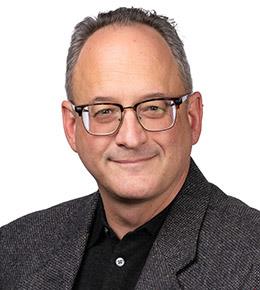
Guest Column: Happy Father’s Day
Thomas E. Simmons
I remember the first time I appreciated Ronald Reagan. It was a smidgen over forty-five years ago. I was watching the news with my dad. I was twelve. My dad was forty-four. The Republican presidential primaries were heating up.
In February of 1980, Reagan was trying to best Bush in the primaries. New Hampshire’s was a key primary and Bush had just won Iowa. Reagan was the underdog. A panel-style debate, attended by Bush (along with Bob Doyle, Howard Baker, John Anderson, and Phil Crane), and financed by Reagan’s campaign, was scheduled in a New Hampshire auditorium. Before the debate could begin, there was a dust-up about something and someone instructed the sound man (a Mr. Green) to mute Reagan’s microphone.
Regan stood up. He was vigorous and frustrated, yet in control of his temper, his words, and his actions. He said in an expressive, assertive, and offended voice: “I am paying for this microphone, Mr. Green.” The auditorium erupted in the applause of Reagan’s supporters. And the microphone stayed on.
As a kid, I didn’t understand who had paid for the microphone or anything else about the context of the sound bite. Most contemporary voters were probably equally uninformed. (I’ve since watched the full debate.) What I could see even as a twelve-year-old, however, was the tenacity and the measured leadership that Reagan had modeled.
It was a small thing, but small things are not nothing. Indeed, small things can be quite revealing of a person’s character.
Reagan had stood up for himself and his campaign respectfully, articulately, and effectively. He had done the right thing at the right time and in the right way. He was clear-headed and assertive. His spur-of-the-minute performance evidenced a model disposition toward virtuous actions. In my young brain, I connected those predispositions of Regan on display in the sound bite with the effective predispositions for leading the free world.
I wasn’t wrong. Reagan had what it took to lead the country and the world as well. He had a fine moral compass. He was an august statesman who didn’t take himself too seriously, though he took his county and its moral compass very seriously indeed. He was a man of generosity, sincerity, courage, and unbending loyalty to his wife, Nancy.
He had gravitas. He had a sense of humor. He had vision. He was someone a young boy and his father could look up to.
The memory I treasure of this television moment also underscores my reminiscence; that of an decades-old impression that two television viewers had shared, father and son. I was too young to yet choose a party or even conceptualize between right and left. But on that day, my dad and I were both in agreement that Reagan could stand up and fight, with dignity, for what he thought was right. We both liked what we saw and we shared a common conviction.
We both witnessed the same thing on the TV screen: A man who cared deeply about what was just and what was unjust, a man who could distinguish between right and wrong, and a man with the vigor and tenacity to frame a message and convince others of its rightness. A virtuous herald. A man with a vision of the country’s leadership role on the world stage. A man we could respect, even if we wouldn’t endorse everything he said or did.
I was reminded of the New Hampshire auditorium event when I heard, more than four decades later, that Dennis Quaid would be playing Ronald Reagan in a major Hollywood picture. Quaid, in an interview with Dr. Jordan Peterson, conceded that he was initially reluctant to play Reagan because, inter alia, he didn’t think he looked much like the former president.
But the jawlines match. The tenacity and clear-eyed vision of what’s being confronted do too; those characteristics align between the actor and the president he played. Quaid was well-cast.
My father died in May of 2006 on the airplane that was carrying him back to Rapid City. He was returning from the Mayo Clinic where the inevitability of his advanced cancer had been confirmed. He’d been diagnosed just ten days earlier and given ten days to live. He died in the evening somewhere up high in the air over South Dakota. His doctor’s mortality prediction of ten days had been correct – almost to the hour.
Happy Father’s Day, Dad.
To see the microphone in question from the New Hampshire debate, head to Simi Valley, California. It’s on display at the Reagan Presidential Library. Someday, I hope to do so myself and rekindle those memories of my father once again.
Thomas E. Simmons
University of South Dakota Knudson School of Law
Vermilion, SD
